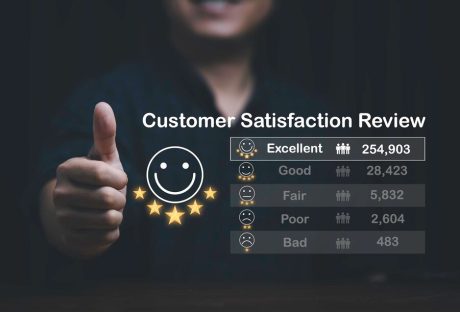You might have commonly heard an age-old proverb- ‘the customer is always right’. Even though this statement us very old, it still resonates today in our modern economies. This is because satisfying a customer and customer success is at the heart of any business.
Customer Success is not a narrow term. Rather, it stands for all interaction and engagement that a consumer has with your brand and product/service at all levels. This means right from Marketing to Sales and After-Sales. All the experiences together are cumulatively focussed on attaining customer success.
In this article, we will look at why ensuring customer progress is so important for any business. We will also look at how technology and software have enabled businesses to accurately fulfill customer success parameters for their brands and products.
Customer Success: Meaning and Definition
In recent years, business software that helps brands fulfill customer success is helping businesses contribute directly to profits and revenues. While there is no one standard definition of customer success, we have tried to create one for you-
“Customer Success is the process of creating positive and meaningful relationships with your consumers that encourage them to fully explore your brand, product, and services. It is also a process, which has at its heart, a desire to improve the longevity of commercial transactions and understand the evolution of a customer’s wants and requirements.”
Every brand, which utilizes a customer success strategy, wants the customer to feel like they are successful post purchasing a brand’s product. Think of all the automobile advertisements, which you have seen on YouTube. All of them have a highly successful executive who is well-groomed and dressed come out of his office and drive the car.
When it comes to customer success, it is important to remember that in addition to the usefulness of the product, it is also the experience, which matters. This is where the entire journey of the customer becomes important. It is also equally important to remember the period of engagement.
Is Customer Success Essential to growing your Business?
It is important to note that we live in a world where customers have access to information. From the web to social media pages, everyone is doing research all the time. An informed potential customer is more likely to evaluate his options and choices.
In such a situation, a customer success strategy should cover all the bases. This includes having an attractive and updated website, engaging content on social media and positive reviews on aggregator sites, Quora, Reddit, and other review sites. Please bear in mind that this is just the pre-sales research part.
All these characteristics are part of something which is known as the ‘Customer On-Boarding Process’ and the ‘Buyer’s Journey’. Once a potential customer is attracted to the next team/department and feature takes over. A robust and strategically executed customer success plan interacts with the customer on at least ten different levels.
In today’s times, customers are spoiled for choices. According to experts, customer success is probably the best-kept secret to increase overall productivity, generating revenues and scaling up the business.
Conclusion
Even though there are significant benefits to customer success, it is important to note that the field is vast and diverse. This is why most serious brands and businesses are turning to customer service software to help them automate the process. The software ensures the right data collection, maintains a track of actions taken and follow-ups made.
In the following years, customer service is going to be a number one priority for all businesses, irrespective of size or output. Do you think that customer success is essential for the success of every business? Drop your answers, in the comments section below.
Read Also:























